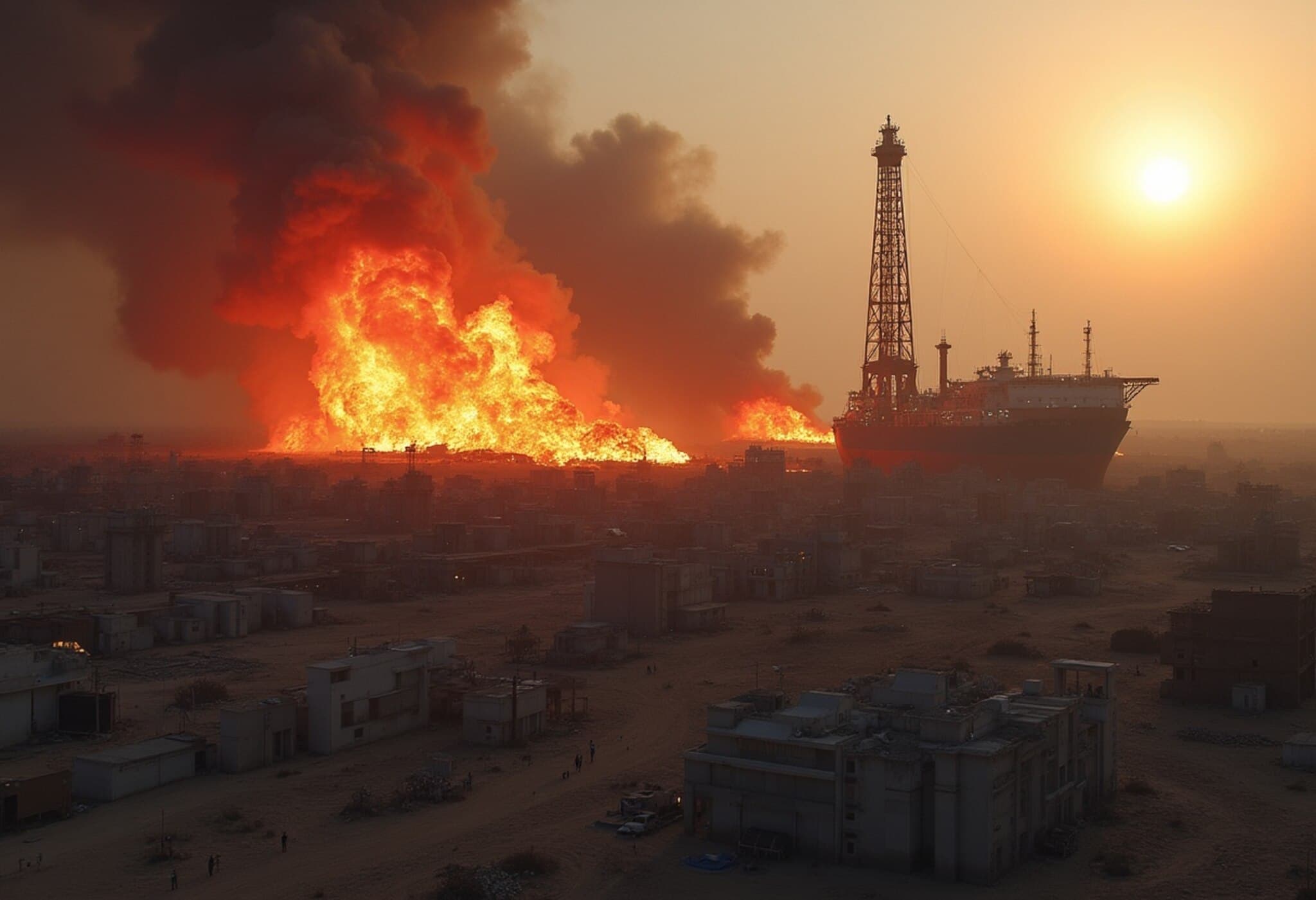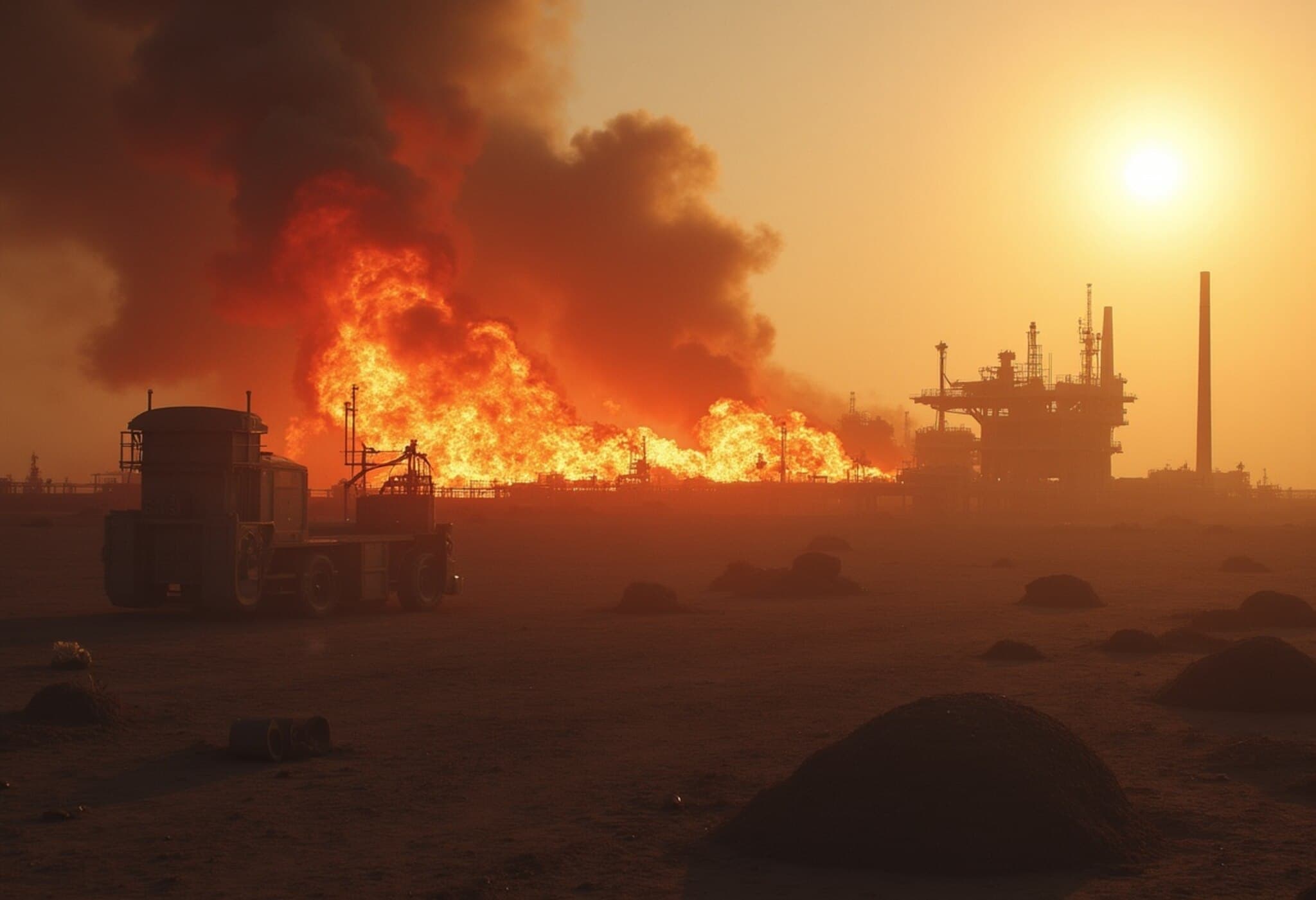Oil Prices Spike Amid US Airstrikes on Iranian Nuclear Sites
Following US airstrikes targeting Iranian nuclear facilities, global oil prices surged by up to 2%, while US stock futures and Asian markets experienced downward pressure. The uncertainty surrounding the conflict has raised concerns over a potential blockade of the Strait of Hormuz, which could drive oil prices as high as $130 per barrel.
Market Reaction and Investor Sentiment
Although the initial reaction saw Brent crude climb to $77.94 per barrel and US crude reach $74.82, prices slightly eased as the market digested the news. Meanwhile, major US stock futures, including the S&P 500 and Dow Jones Industrial Average, dipped by around 0.3%, with the Nasdaq futures falling 0.5%. Asian shares followed the trend, reflecting concerns over geopolitical tensions.
Experts suggest that the US strike, which hit three Iranian sites, might provoke a limited conflict. Neil Newman, managing director at Atris Advisory Japan, believes the offensive could be a decisive move, potentially resulting in a short-term flare-up rather than prolonged hostilities, which could calm markets.
The Strategic Importance of the Strait of Hormuz
The Strait of Hormuz stands out as a critical chokepoint for global oil shipments, especially from Iran. Although physically challenging, any attempt by Iran to close the strait could disrupt global energy supplies, sharply increasing shipping risks and insurance costs. Such a move is fraught with political and economic risks, given Iran’s dependence on exporting crude oil, mainly to China, via this route.
US Secretary of State Marco Rubio has warned that blocking the strait would amount to "economic suicide," pledging a strong US response and urging China to discourage Iran from taking such action.
Different Perspectives on Iran's Possible Response
- Optimistic view: Analysts like Tom Kloza expect Iranian leaders to steer clear of drastic measures, anticipating oil prices to stabilize after initial volatility.
- Cautious view: Ed Yardeni predicts restraint from Tehran, noting that irrational actions could backfire economically.
- More skeptical outlook: Veteran analyst Andy Lipow warns that political or emotional motivations may lead Iran to take aggressive steps, potentially shutting the Strait of Hormuz, which would push oil prices to $120-$130 per barrel and have widespread economic repercussions.
Impact on Asian Markets and Currencies
In Asian trading, market indices reacted variably. Taiwan’s Taiex dropped by 1.4%, while South Korea’s Kospi initially lost 1% but recovered somewhat to close down 0.2% at 3,016.71. Japan’s Nikkei 225 slipped 0.2%, despite gains in defense-related stocks such as Mitsubishi Heavy Industries (+0.8%) and ShinMaywa Industries (+1.5%), companies benefiting from heightened geopolitical tensions.
Markets in Australia and Hong Kong experienced modest declines and gains, respectively, with the Shanghai Composite index advancing 0.5%. Meanwhile, the US dollar strengthened against the Japanese yen and euro, highlighting the cautious sentiment in currency markets.
Geopolitical Tensions Heighten Uncertainty
The recent US strikes have significantly raised the stakes amid ongoing friction between Iran and Israel, following earlier Israeli attacks earlier in June. The fallout has rattled energy and financial markets, underscoring the fragile balance of global geopolitical and economic stability.
As developments unfold, investors remain watchful for Tehran's next moves, which will undoubtedly influence commodity markets and investor confidence worldwide.



















